Livelihood linkages with legumes
28 February 2023
Project Name
Climate-Smart Agriculture for Climate-Resilient Livelihoods (CSARL)
GEF Implementing Agency
IFAD
Objective
To enhance the food and nutrition security, as well as promote the livelihoods of smallholder farmers, through diversified, climate-resilient agricultural production practices and associated market linkages.
Project Targets
land under integrated and sustainable management
GHG emissions avoided or reduced
beneficiary households
Eswatini faces the interconnected challenges of rural poverty, food insecurity and environmental degradation. The main drivers of environmental degradation in eSwatini are increasing human population, soil nutrient mining within farmlands, growing livestock populations on communally grazed rangelands, land tenure arrangements, deforestation and climate change. These drivers have led to reduced natural resources, biodiversity, and ecosystem services—all essential for agricultural productivity. The result increase food insecurity for smallholder farmers and contribute to rural poverty and climate change vulnerability.
To address the interconnected challenges of rural poverty, food insecurity and environmental degradation, the Government of Eswatini, through the Resilient Food Systems programme, aims to introduce a paradigm shift toward integrated, multi-stakeholder development planning at the local level. This planning approach aims to ensure land, water and other natural resources are sustainably managed and harnessed as key drivers of growth.
The project is structured around three principal components:
The project draws on IFAD’s experience of similar projects in Eswatini and deepens the understanding of how to address food security nationally through integrated approaches. The CSARL project is closely associated with IFAD’s Smallholder Market-Led Program (SMLP), which strengthens market linkages and promotes the scaling-up of resilient and sustainable agricultural production practices and approaches.
The project aims to meet the following targets:
Chiefdom Development Planning process institutionalised in three of the four regions in the project area.
Sustainable Land Management (SLM) applied at multiple scales across 37 Chiefdoms in three regions.
National capacity developed to monitor and refine SLM policies and programmes
The Ministry of Finance provides oversight and liaises with IFAD and GEF for project implementation. Major stakeholders at the national level include the Ministry of Agriculture, Eswatini Water and Agriculture Development Enterprise, Eswatini Environment Authority and the Eswatini Meteorological Service. The Rural Development Areas, local NGOs, and the Inkhundla (Parliamentary Constituency) play key roles in activities at the chiefdom level.
Each RFS country project conducts activities that fall under common thematic areas within the programme. Explore each project theme relevant to the RFS eSwatini country project below to see which activities are being implemented under each theme.
Stories from the Field
Explore our stories from the field to learn more about the activities, milestones, lessons learned, and achievements of the RFS eSwatini project.
Relevant Resources
We have a growing library of reports, briefs, case studies, media, tools and guidelines. Explore all resources related to the RFS eSwatini project to get greater insight into our programme activities.
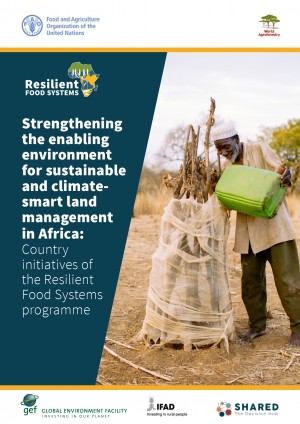
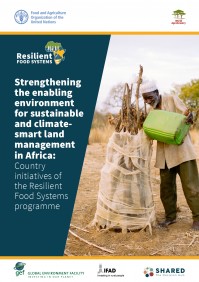
Barriers to implementation of sustainable land management (SLM) practices limit their ability to contribute to addressing land degradation. This report presents country case studies from the Resilient Food Systems programme highlighting SLM project activities undertaken in six countries in sub-Saharan Africa, and the lessons learned during their implementation. The innovative approaches to bridging governance and institutional gaps have demonstrated positive impacts on both the environment and livelihoods of rural communities.
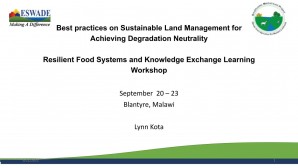
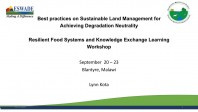
The RFS Eswatini project team presents their context, approaches and lessons learned in reversing land degradation.
This presentation was part of Learning Lab 3: Best practices on Sustainable Land Management for achieving Land Degradation Neutrality of the 2022 Resilient Food Systems Annual Workshop in Blantyre, Malawi.
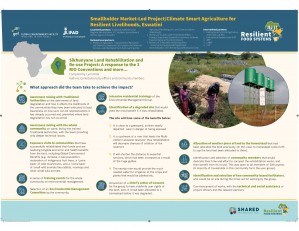
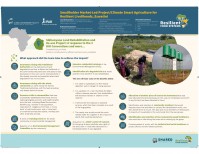
The 2022 Resilient Food Systems Knowledge Exchange and Learning Workshop included an interactive experience-sharing wall, featuring impact posters across RFS countries and components of the Regional Hub.
This poster was prepared by the Smallholder Market-Led Project/Climate Smart Agriculture for Resilient Livelihoods, Eswatini project.